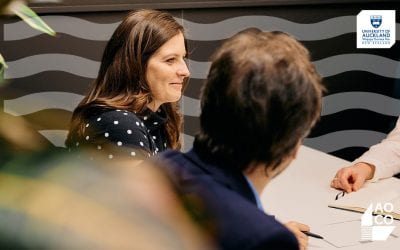Project Management Bodies of Knowledge (Online)
Gain a broad understanding of the Waterfall, Agile, and Lean approaches to project management. Apply NowTalk to an AdvisorProject Management Bodies of Knowledge (Online)
Gain a broad understanding of the Waterfall, Agile, and Lean approaches to project management. Apply NowTalk to an AdvisorRecommended Background
Students will have a bachelors degree in a relevant subject.
University Entrance (or equivalent required for admission)
Duration
12 weeks
Next start dates
3 March 2025 (2025 Semester One)
21 July 2025, (2025 Semester Two)
Enrolment closes one week before the course starts. Apply early to secure your spot.
Domestic Fees
$2,993.40
Why is this online course right for you?
This course is part of the Master of Engineering Project Management (MEPM) and may also be taken as a course-only study option. It aims to provide you with a broad understanding of the Waterfall, Agile and Lean approaches to project management, how they differ, where they are used, examples of their use and how to implement them. The coursework is designed to allow you to demonstrate your ability to apply the course content in practice.
Upon completion, students who wish to progress their studies further towards a formal qualification may count this course towards the Master of Engineering Project Management (entry criteria and time limits apply).
Course Structure
Engineering is a complex process from conception to final delivery, and is usually delivered via projects. Project management is therefore an important capability for most engineers and managers, irrespective of their engineering discipline or management background.
Increasingly projects are multi-disciplinary and involve a range of functions including commercial, HR, legal, environmental, societal, political and technical components. Hence project management has grown to become a discipline in its own right, with different schools of thought or perspectives. Two major schools of thought about project management are ‘Waterfall’ and ‘Agile & Lean’ project management. This course addresses both approaches by means of critical analysis and applied application.
Course |
Description |
||
| Projects and risk | In this module, you will begin building a learning community with your peers and define some key terms in the field of project management. You will also start exploring differences between Waterfall and Agile approaches to project management, and the main phases in a project’s lifecycle. | ||
| Concepts and stakeholders | This module looks at the common first phase of a project—the concept phase. You will explore the relationships between the four key components of projects: scope, time, quality and cost. You will also focus on the people involved in projects by considering stakeholder communication, project roles and process groups. | ||
| Planning, scope and scheduling | In this module, you will look at planning and scheduling, and how both approaches help us eliminate risk and minimise the late discovery of essential tasks. | ||
| Budgeting and cost management | In this module, you will learn how to prepare the project’s budget and manage it. | ||
| Leadership, teams and resources | In this module, you will turn to the question of managing people: just how do we inspire, lead and manage the team through adversity to achieve the project’s objectives? | ||
| Risk management systems | Project managers need to create processes that bring order to work so that people can work effectively. These processes are part of the ‘management systems’. This module focuses on risk management systems, a critical area of knowledge for project managers. | ||
| Agile management systems | The previous module focused on risk management and how the formal process works in the Waterfall approach. In this module you will look at Agile and its very different approach to stakeholder management and scheduling. | ||
| Change management | There are two ways of thinking of change—how the project introduces change to the world, and how changes in the world are reflected into the project. The latter dimension is the subject of this module—how the team’s plans are adjusted to suit changes in the environment of the project. | ||
| Projects at scale and procurement | Most people can understand how the Agile approach can be successful in a small team with limited scope in a complex environment, but how do we scale this for larger projects, or across a whole organisation? In this module, you will explore how we can coordinate multiple teams or external parties without resorting to contracts, documentation and a work breakdown structure. | ||
| Communications | Communication is the lifeblood of all projects—failure to communicate is often cited in the reasons for project failure. In this module, you will learn about the key processes behind communication and how to deliver effective communication in the project environment. | ||
| Quality and testing | It is essential that the work delivered in a project is of good quality. In this module you’ll look at how to ensure project deliverables are up to standard and how the approach varies between Agile and Waterfall. | ||
| Project integration and project close | For the Waterfall project, integration is a major challenge—making sure everyone is aware of inter-dependencies and acting appropriately. In Agile, the team manages this, but scaling becomes an issue. In this module you’ll explore the topic of integration and then how things are drawn to a close from the project’s perspective. |
Programme Structure
Engineering is a complex process from conception to final delivery, and is usually delivered via projects. Project management is therefore an important capability for most engineers and managers, irrespective of their engineering discipline or management background.
Increasingly projects are multi-disciplinary and involve a range of functions including commercial, HR, legal, environmental, societal, political and technical components. Hence project management has grown to become a discipline in its own right, with different schools of thought or perspectives. Two major schools of thought about project management are ‘Waterfall’ and ‘Agile & Lean’ project management. This course addresses both approaches by means of critical analysis and applied application.
Projects and risk
In this module, you will begin building a learning community with your peers and define some key terms in the field of project management. You will also start exploring differences between Waterfall and Agile approaches to project management, and the main phases in a project’s lifecycle.
Concepts and stakeholders
This module looks at the common first phase of a project—the concept phase. You will explore the relationships between the four key components of projects: scope, time, quality and cost. You will also focus on the people involved in projects by considering stakeholder communication, project roles and process groups.
Planning, scope and scheduling
In this module, you will look at planning and scheduling, and how both approaches help us eliminate risk and minimise the late discovery of essential tasks.
Budgeting and cost management
In this module, you will learn how to prepare the project’s budget and manage it.
Leadership, teams and resources
In this module, you will turn to the question of managing people: just how do we inspire, lead and manage the team through adversity to achieve the project’s objectives?
Risk management systems
Project managers need to create processes that bring order to work so that people can work effectively. These processes are part of the ‘management systems’. This module focuses on risk management systems, a critical area of knowledge for project managers.
Agile management systems
The previous module focused on risk management and how the formal process works in the Waterfall approach. In this module you will look at Agile and its very different approach to stakeholder management and scheduling.
Change management
There are two ways of thinking of change—how the project introduces change to the world, and how changes in the world are reflected into the project. The latter dimension is the subject of this module—how the team’s plans are adjusted to suit changes in the environment of the project.
Projects at scale and procurement
Most people can understand how the Agile approach can be successful in a small team with limited scope in a complex environment, but how do we scale this for larger projects, or across a whole organisation? In this module, you will explore how we can coordinate multiple teams or external parties without resorting to contracts, documentation and a work breakdown structure.
Communications
Communication is the lifeblood of all projects—failure to communicate is often cited in the reasons for project failure. In this module, you will learn about the key processes behind communication and how to deliver effective communication in the project environment.
Quality and testing
It is essential that the work delivered in a project is of good quality. In this module you’ll look at how to ensure project deliverables are up to standard and how the approach varies between Agile and Waterfall.
Project integration and project close
For the Waterfall project, integration is a major challenge—making sure everyone is aware of inter-dependencies and acting appropriately. In Agile, the team manages this, but scaling becomes an issue. In this module you’ll explore the topic of integration and then how things are drawn to a close from the project’s perspective.
Course Benefits
Students who complete this course will be able to:
- Explain and critically evaluate the practices of project management, comparing and contrasting the Waterfall approach with Agile and Lean-thinking practices
- Identify, apply and critically assess the practical limitations and factors that influence the successful outcome of projects, citing real-world evidence
- Critically analyse a range of project types in context and the alignment of organisations for implementing different project management approaches in respect to factors such as risk, volatility, business environment and cultural readiness
- Critically evaluate, apply and synthesise a range of Waterfall and Agile project management theories, approaches, tools and techniques to develop practicable fit-for-purpose project implementation plans
- Compare and contrast Waterfall and Agile approaches to project roles, and apply with integrity to solve complex problems
- Apply interpersonal/influencing skills in the execution of a project involving participants from a range of backgrounds
- Communicate and present project information, deliverables and reports to stakeholders
- Critically reflect on their own and a team’s performance, and develop and execute improvement plans.
Upon successful completion of the course you will:
- Be awarded with 30 credit points from the University of Auckland
- Have the option to take your credit into the MEPM (entry criteria and time limits apply)
Frequently asked questions about this course
Application FAQs
What are the entry requirements?
This course is for students with a bachelors degree in a relevant subject. Relevant subjects include applied science, architecture, commerce, construction, engineering, information technology, science, and technology. Please note that for admission you must meet the requirements to study at a New Zealand University (e.g. through University Entrance or an alternative entrance pathway).
What is the date for the next intake?
The next start date for this course is 27 February 2023. Enrolment closes one week before the course starts. Enrol early to secure your spot.
Is the course fee a one-off lump sum?
Yes, the course fee is a one-off sum of $2,907.90 for domestic students.
Is this course open to non-resident students?
No. Currently Auckland Online Certificates of Proficiency are only open to NZ citizens and permanent residents.
Studying FAQs
Can I study the course in my own time? Is it suitable for those working full-time?
Yes. Auckland Online courses are designed for working professionals. They are flexible yet structured to help you gain the knowledge in the time you have. Core content is delivered asynchronously, so you can study at a time that suits you (within the allocated course dates).
In addition, a live Zoom tutorial will be held once a week in the late afternoon or early evening. It is not mandatory that you attend every week. However, you are highly encouraged to actively participate on a regular basis as this is a key time to connect with peers, the teaching staff, and to discuss queries on assignments. You will also collaborate with your peers on a team assignment. Teams are empowered to be self-organising and will agree regular times to meet. If you are unable to make a team meeting, you will need to inform your peers and ensure you contribute fairly to the team effort. This is a key principle in project management.
How is the course structured?
The course will run over 12 weeks (with a break in the middle), and will comprise 12 weekly modules. Further details on the course structure can be found under the ‘Course Structure’ tab further up on this page.
Assessment FAQs
How will I be assessed?
Learners will be assessed through a combination of activities that address the learning objectives from each of the modules in the course. These will comprise research essays, individual and team assignments, a test, and reflections on learning.
Benefits FAQs
What is a Certificate of Proficiency (CoP)?
A Certificate of Proficiency (CoP) is a course-only study option that allows you to take a course at the University of Auckland, without studying a full programme. It is a good option for those who want to study short-term or to test whether a subject is something they wish to pursue more of in the future.
Does the course enable me to take further study at the University?
If you decide to progress your studies further towards a full qualification, you can apply to reassign the points from your CoP to the MEPM (entry criteria and time limits apply).
How many course credits will I attain upon completion of the course?
Upon completion of the course, you will be awarded with 30 credit points from the University of Auckland.
Do I get a certificate at the end?
As a Certificate of Proficiency is not a formal qualification, you will not be able to graduate with it or receive a graduation certificate. Your results will be recorded on your official academic transcript, providing evidence of your study.
Start Your University Application
Before we transfer you to the University of Auckland application portal to start your application, we would like to capture a few details.
These details enable us to provide you with ongoing information about this course, including exciting updates or any upcoming webinars. Our advisors may also contact you to see if you require any personalised advice to guide you through the application process.
* indicates a required field
What Scholarships Am I Eligible For With 100% Online Study?
If you’re feeling stuck in your job or you’re simply looking for a new challenge, a career change can shake things up and find your passion. But before you make the leap, here are a few things you need to think about!
How to Get Employer Funding for 100% Online Postgraduate Programmes & Courses
If you’re feeling stuck in your job or you’re simply looking for a new challenge, a career change can shake things up and find your passion. But before you make the leap, here are a few things you need to think about! We explore the reasons why employers should sponsor their employees’ postgraduate study and how employees can secure funding from their employers.
What Types of Student Loans Am I Eligible For With 100% Online Study?
Embarking on postgraduate study can be a big decision, with personal finances to take into consideration. You could be eligible for a student loan via Studylink if you enrol in an Auckland Online programmes.




